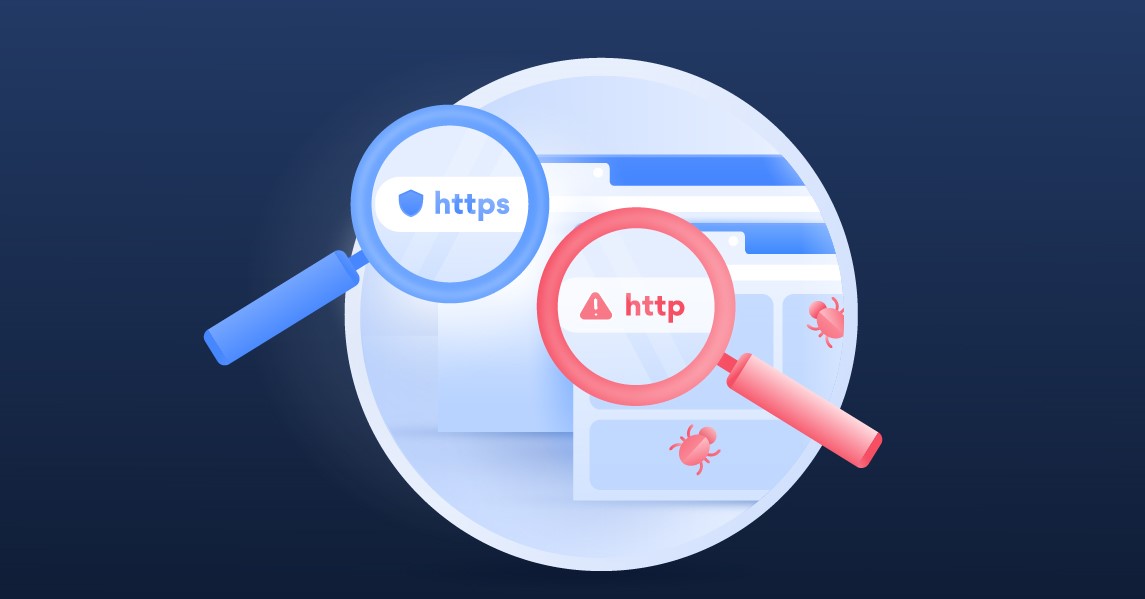Port 443 is a well-known port used in Internet communication, particularly for secure data transfer. In this article, we will explore the significance of Port 443, its role in internet security, and the benefits it offers. Whether you’re a casual internet user or an IT professional, understanding Port 443 can enhance your knowledge about online security and improve your overall browsing experience.
In the realm of computer networking, a port is a logical endpoint for communication between devices. Port 443 is a specific port number assigned for the Transport Layer Security (TLS) or Secure Sockets Layer (SSL) protocols. These protocols enable secure communication between a web server and a client, ensuring that data transmitted over the internet remains encrypted and confidential.
Read More: IDE Initialization Is Started: 7 Important Points
Explore the Contents
Port Numbers and Their Significance
Port numbers are essential for establishing network connections and identifying the type of service being requested. They range from 0 to 65535, with specific ranges reserved for well-known services. By using a standardized system, port numbers allow network devices to identify and deliver incoming data to the appropriate application or service.

The Role of Port 443 in Internet Security
Encryption and Secure Communication
Port 443 plays a crucial role in internet security by facilitating encrypted communication between web servers and clients. Encryption is the process of converting data into a form that is unreadable to unauthorized parties. By using the TLS or SSL protocols, Port 443 ensures that data transmitted over the internet is encrypted, providing confidentiality and integrity.
HTTPS Protocol
The Hypertext Transfer Protocol Secure (HTTPS) is the secure version of the standard HTTP protocol used for browsing the web. Port 443 is the default port for HTTPS traffic. When you visit a website with an HTTPS connection, your browser establishes a secure connection with the web server using Port 443, encrypting all data exchanged during the session.
Port 443 and Web Browsing
When you access a website using HTTPS, your browser communicates with the web server through Port 443. This ensures that sensitive information, such as login credentials, financial details, or personal data, remains secure during transmission. Port 443 allows for secure web browsing, safeguarding your privacy and protecting you from potential threats, such as data interception or tampering.
Port 443 and Firewall Configuration
Firewalls are security devices that monitor and control incoming and outgoing network traffic. They play a vital role in protecting networks from unauthorized access and malicious activities. Configuring firewalls to allow traffic through Port 443 is essential to enable secure web browsing and ensure that legitimate HTTPS connections are not blocked.
Port 443 and Common Misconceptions
Despite the widespread use of Port 443 for secure communication, some misconceptions exist regarding its functionality and limitations. Let’s address a few common misconceptions:
- Port 443 is immune to attacks: While Port 443 facilitates secure communication, it does not guarantee absolute immunity from attacks. Although the encryption and security measures associated with Port 443 make it more resistant to interception or tampering, vulnerabilities can still exist in the underlying protocols or server configurations. It is crucial to regularly update and patch systems to mitigate potential risks.
- Port 443 is only for web browsing: While Port 443 is commonly associated with web browsing and the HTTPS protocol, it can be used for other applications as well. It is possible to configure services other than HTTP, such as secure email servers or virtual private networks (VPNs), to utilize Port 443 for encrypted communication.
- Port 443 is the only secure port: While Port 443 is widely recognized as a secure port due to its association with HTTPS, there are other ports that can also provide secure communication. For example, Port 22 is commonly used for secure shell (SSH) connections, and Port 636 is reserved for secure LDAP (Lightweight Directory Access Protocol) communication. Different ports may be suitable for specific protocols or applications depending on their intended use.
Benefits of Using Port 443
Utilizing Port 443 offers several advantages for both individuals and organizations:
- Data confidentiality: Port 443 ensures that the data exchanged between your device and the web server remains encrypted, protecting it from eavesdropping and unauthorized access.
- Data integrity: With Port 443 and the associated security protocols, the data integrity is maintained during transmission. This prevents tampering or modification of information, ensuring that the received data is authentic and unaltered.
- Protection against information theft: By using Port 443 and HTTPS, sensitive information, such as login credentials or credit card details, is safeguarded from potential attackers who may attempt to intercept data.
- Enhanced trust and credibility: Websites using Port 443 and HTTPS display a padlock icon and often a “Secure” label in the browser’s address bar. This visual indication reassures users that their connection is secure and builds trust in the website’s credibility.
Port 443 and E-commerce Transactions
E-commerce platforms heavily rely on Port 443 to secure online transactions. When making purchases or submitting personal information on an e-commerce website, the use of Port 443 and HTTPS ensures that the sensitive data is encrypted and protected from unauthorized access. This enables users to confidently engage in online shopping, knowing that their financial information is secure.

Port 443 in Remote Access and VPNs
Port 443 also plays a significant role in remote access and VPN connections. By configuring VPN services to utilize Port 443, organizations can establish secure connections for remote employees, allowing them to access internal resources while ensuring data confidentiality. The use of Port 443 ensures that VPN traffic is less likely to be blocked by firewalls or restrictive network policies.
Conclusion
In conclusion, Port 443 is a vital component of secure internet communication. By facilitating encrypted connections through the HTTPS protocol, Port 443 ensures the confidentiality and integrity of data transmitted between web servers and clients. Understanding the significance of Port 443 empowers users to make informed decisions about their online security and privacy.
Read More: The RPC Server is Unavailable: 7 Important Points to Know
FAQs
Why is Port 443 considered secure?
Port 443 is considered secure because it utilizes encryption protocols like TLS or SSL to establish a secure connection between the client and the server, protecting data from unauthorized access.
Can I use Port 443 for non-HTTPS traffic?
While Port 443 is typically associated with HTTPS traffic, it is possible to configure other applications or services to use Port 443 for secure communication.
How can I check if Port 443 is open?
You can use various network scanning tools or online port scanners to check if Port 443 is open on a specific server or network. These tools can provide information about open ports and their associated services.
What are some alternatives to Port 443 for secure communication?
While Port 443 is widely used for secure communication, there are other ports that can provide similar functionality. For example, Port 8443 is often used as an alternative for HTTPS traffic, and Port 22 is commonly used for secure shell (SSH) connections.
Is Port 443 the only secure port?
No, Port 443 is not the only secure port. Different ports can be used for secure communication depending on the specific protocols or applications being used. Ports like 22 (SSH), 636 (LDAP over SSL), or 993 (IMAPS) also offer secure communication capabilities.



